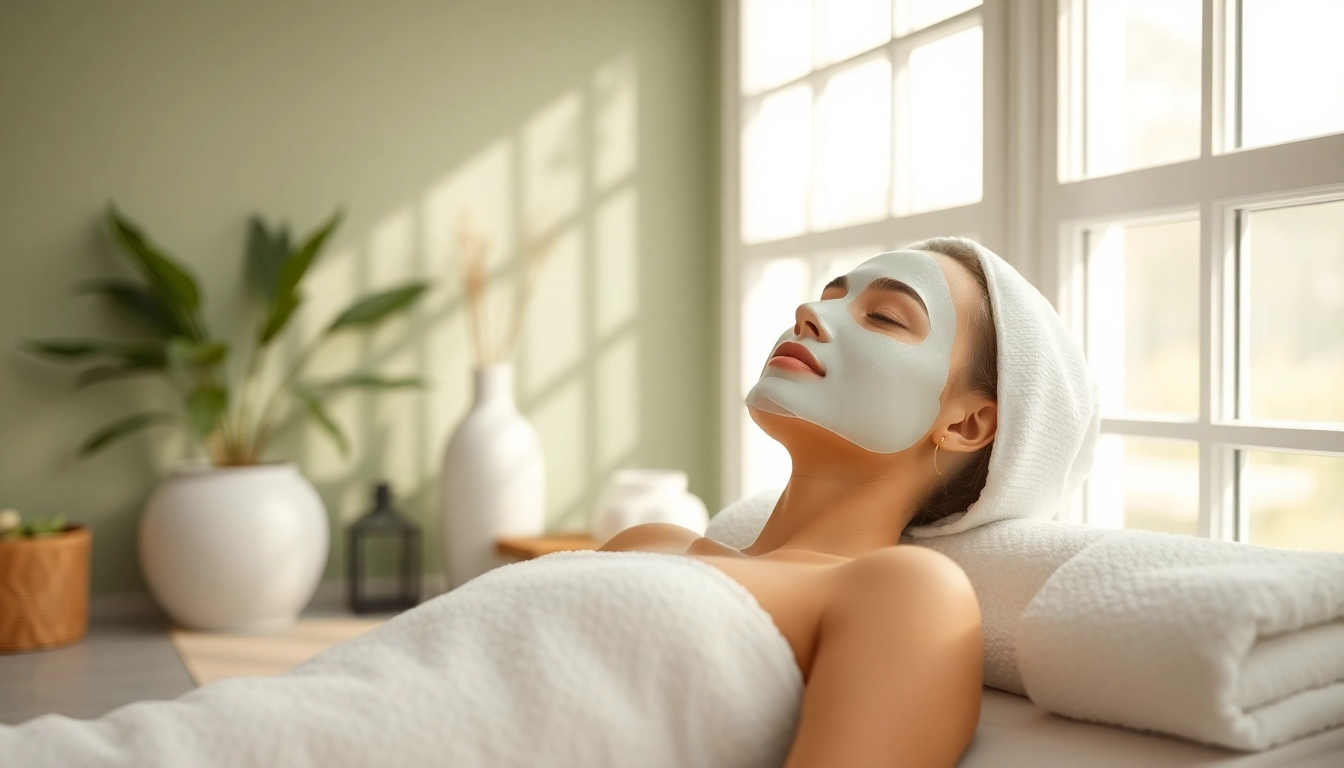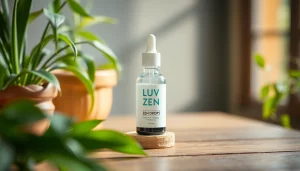Elevate Your Skincare Routine with the Best Facial Masks for Glowing Skin
The Importance of Facial Masks in Skincare
Facial masks have become an essential component of many beauty routines, offering targeted treatment that caters to a variety of skin concerns. These skincare tools can enhance hydration, improve skin texture, and provide an overall sense of relaxation. By incorporating a facial mask into your regimen, you can elevate your skincare practice to new heights, ensuring healthier and more radiant skin.
Understanding the Benefits of Facial Masks
Facial masks serve different purposes depending on their formulation and ingredient composition. Here are some key benefits:
- Hydration: Many masks are designed to infuse moisture into the skin, particularly beneficial for those with dry or dehydrated skin types.
- Detoxification: Clay-based masks and charcoal formulas can draw out impurities and toxins from the skin, leaving it clearer and brighter.
- Exfoliation: Masks containing alpha hydroxy acids (AHAs) or enzymes can help slough away dead skin cells, promoting renewal.
- Soothing: Ingredients like aloe vera, chamomile, or cucumber can calm irritated or sensitive skin, providing immediate relief.
- Anti-aging: Many facial masks include powerful antioxidants that can combat the signs of aging, helping to maintain youthful-looking skin.
Different Types of Facial Masks and Their Uses
Facial masks come in various forms, each tailored to address specific skin issues:
- Cream Masks: These are rich in moisturizing agents and are great for dry or mature skin.
- Clay Masks: Ideal for oily or acne-prone skin, they absorb excess oil and can minimize the appearance of pores.
- Sheet Masks: Convenient and mess-free, these single-use masks are soaked in a serum, providing a quick hydration boost.
- Gel Masks: Often soothing in nature, gel masks offer hydration and cooling effects, making them excellent for sensitive skin.
- Peel-off Masks: These masks are typically used for deep cleansing and can help remove dead skin cells and impurities.
How to Choose the Right Facial Mask for Your Skin Type
Selecting the appropriate facial mask is critical for observing positive results. Here’s how to find the right match for your skin type:
- Oily Skin: Look for clay or charcoal masks that help absorb excess oil.
- Dry Skin: Choose cream or hydrating gel masks with ingredients like hyaluronic acid or glycerin.
- Combination Skin: A balanced approach, such as a hydrating mask that also contains clay for oily areas, can work well.
- Sensitive Skin: Opt for soothing masks with gentle ingredients like aloe or chamomile to minimize irritation.
- Acne-Prone Skin: Seek out masks that contain salicylic acid or tea tree oil to treat breakouts while preventing future ones.
Popular Ingredients in Facial Masks
Nourishing Elements for Hydration and Repair
Many masks contain key ingredients known for their hydrating and skin-repairing properties. Some popular options include:
- Hyaluronic Acid: A powerful humectant that draws moisture into the skin.
- Glycerin: Another humectant that helps keep skin hydrated.
- Aloe Vera: Not only soothing, but also hydrating, aloe vera is excellent for all skin types.
- Peptides: These can help stimulate collagen production, contributing to skin repair and firmness.
Exfoliating Options for Brighter Skin
Exfoliation is essential for removing dead skin cells and revealing a brighter complexion. Masks with the following ingredients are popular for their exfoliating properties:
- AHAs (Alpha Hydroxy Acids): Derived from fruits, AHAs help in the gentle exfoliation of the surface of the skin.
- BHAs (Beta Hydroxy Acids): Effective for deeper exfoliation, these are particularly useful for oily and acne-prone skin types.
- Enzymes: Natural enzymes from fruits (like papaya and pineapple) can gently break down dead skin cells.
Active Ingredients to Target Specific Skin Concerns
When it comes to addressing specific skin problems, certain active ingredients shine:
- Retinol: Excellent for anti-aging, retinol can help reduce fine lines and improve skin texture.
- Salicylic Acid: Known for its ability to clear pores, this ingredient is perfect for treating acne.
- Vitamin C: A potent antioxidant that brightens the skin and evens out tone.
- Niacinamide: This multi-tasking ingredient can help reduce inflammation, improve texture, and reduce hyperpigmentation.
How to Properly Apply a Facial Mask
Preparation Steps Before Application
To maximize the effectiveness of your facial mask, follow these preparatory steps:
- Cleanse Your Face: Start with a clean canvas. Use a gentle cleanser to remove dirt and impurities.
- Exfoliate (Optional): If your mask is meant for hydrating or soothing, it may benefit from prior exfoliation to improve penetration.
- Steam (Optional): A step that can open pores and allow better absorption of the mask.
Techniques for Maximum Effectiveness
Once your skin is prepped, apply your facial mask using these techniques:
- Use Clean Fingers or a Brush: Apply the mask evenly with clean fingers or a brush for precision.
- Even Application: Ensure the mask covers all areas of the face, avoiding the eye area unless it’s specifically designed for it.
- Follow Instructions: Different masks have different recommended application times; always follow the product instructions for best results.
Common Mistakes to Avoid When Using Facial Masks
To achieve optimal results, avoid these common pitfalls:
- Using the Wrong Mask: Choosing the wrong type for your skin can lead to irritation or ineffectiveness.
- Overuse: Using a mask too frequently can disrupt your skin’s natural balance.
- Neglecting Skin Type Changes: Your skin’s needs can change with seasons, stress, or age, so adjust your mask choice accordingly.
DIY Facial Mask Recipes to Try at Home
Simple Ingredients for Quick Custom Masks
Creating your own facial masks can be a rewarding experience. Here are a few simple recipes using easily accessible ingredients:
- Honey and Yogurt Mask: A blend of honey and yogurt can hydrate and soften the skin.
- Avocado and Olive Oil Mask: Rich in fats, this mask can nourish and repair dry skin.
- Turmeric and Milk Mask: This mask can brighten your complexion and is excellent for oily skin.
Targeting Specific Skin Concerns with DIY Formulas
Customize your DIY masks to tackle specific skin issues:
- Pore Minimizing: Combine egg white and lemon juice to tighten pores and reduce oiliness.
- Anti-aging: A mask made from bananas and coconut oil can provide hydration and fight early signs of aging.
- Brightening: Mixed lemon juice and honey can help lighten dark spots and brighten the skin.
Storing and Maintaining Homemade Facial Masks
When making your own masks, proper storage is essential. Here are some tips:
- Refrigerate: Most homemade masks should be stored in the refrigerator and used within a week to ensure freshness.
- Seal Properly: Use an airtight container to prevent contamination and prolong shelf life.
- Test Before Application: Always do a patch test before applying a new homemade mask to avoid allergic reactions.
Measuring the Effectiveness of Your Facial Mask Routine
Signs That a Facial Mask is Working
Recognizing the effectiveness of your skincare routine is crucial. Here’s what you might notice when a facial mask is doing its job:
- Improved Texture: Your skin feels smoother and softer after application.
- Hydration: If you experience a plumpness and hydration, it indicates that the mask is effective.
- Less Breakouts: A reduction in acne or the severity of breakouts after regular use can signal success.
Adjusting Your Skincare Regimen Based on Results
Noticing changes can sometimes lead to the need for adjustments in your routine. Here are ways to evaluate and adapt:
- Monitor Skin Reaction: Take note of how your skin responds to different masks and adapt based on its behavior.
- Document Changes: Keep a journal of your skincare regimen, including masks used and visible changes in your skin.
- Consult a Dermatologist: If you encounter persistent issues, it might be time to speak to a skincare professional for tailored advice.
When to Consult a Professional for Skincare Issues
While many skin issues can be managed at home, some situations require professional evaluation:
- Severe Acne: If you struggle with chronic acne that doesn’t improve with treatment, a dermatologist can provide cortisol injections or prescription medication.
- Persistent Rashes or Irritation: Lasting redness, itching, or a rash should be evaluated by a skin care specialist to rule out underlying conditions.
- Unpredictable Changes: Significant changes in your skin’s texture, pigmentation, or new growths warrant a professional assessment.



